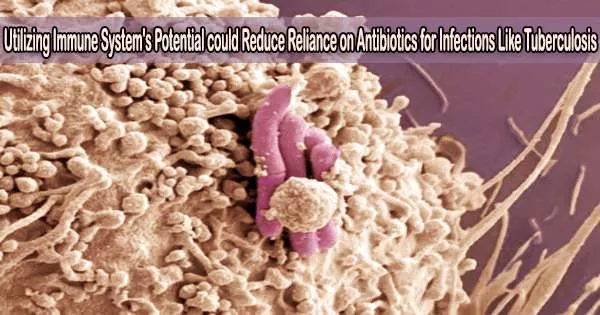Researchers at the Francis Crick Institute have discovered that fighting infections that take hold inside our cells, like TB, requires effective use of the body’s process for removing old and damaged cell sections.
If this natural mechanism can be used in combination with novel therapies, it may be possible to replace or better utilize antibiotics, particularly in situations where bacteria have developed drug resistance.
In their study, published in Nature Microbiology today, ahead of World TB Day on the 24th March, the team studied genes key to bacteria’s ability to evade autophagy, a pathway that cells use to destroy themselves when they are under stress or infected.
From specialized stem cells known as induced pluripotent stem cells, which can develop into any type of cell in the body, they created human immune cells known as macrophages. After that, they altered the macrophages’ capacity for autophagy using methods for genome editing.
When genes key to autophagy were removed and the cells were infected with Mycobacterium tuberculosis (bacilli that cause TB), the bacterial infection took hold, replicating more within the engineered cells and causing mass host cell death.
These findings support the idea that autophagy plays a significant role in preventing intracellular infections like tuberculosis. If this pathway can be improved or enhanced, it may open up new possibilities for combating antibiotic resistance by increasing the potency of currently available antibiotics or providing a treatment option in situations where bacteria have developed resistance.
TB is a great example of where targeting our own immune defences could be really effective, because it takes a very long course of different antibiotic treatments to effectively remove the infection. Anything that can be done to more effectively remove bacteria, could also make a huge difference to the cost and accessibility of treatments.
Beren Aylan
Max Gutierrez, head of the Host-Pathogen Interactions in Tuberculosis Laboratory at the Crick, said: “I first studied the role of autophagy in infection during my PhD, so it’s incredible to see renewed interest in this field. Using the latest technologies, we’ve been able to show a key role for this pathway in controlling infection.”
“As immunotherapies have harnessed the immune system to fight cancer, boosting this immune defence with a host-directed therapy, could be a valuable new tool in the fight against infections, particularly those becoming resistant to antibiotics.”
The scientists further confirmed the significance of autophagy in human defenses by validating their findings using macrophages derived from blood samples.
Beren Aylan, joint first author and PhD student at the Crick together with Elliott Bernard and Enrica Pellegrino, said: “Antibiotic resistance is a huge threat to our health so it’s incredibly important to understand how our bodies fight infection and where there might be room for improvement.”
“TB is a great example of where targeting our own immune defences could be really effective, because it takes a very long course of different antibiotic treatments to effectively remove the infection. Anything that can be done to more effectively remove bacteria, could also make a huge difference to the cost and accessibility of treatments.”
The group is currently preparing to search for pharmacological molecules that might be utilized to specifically increase autophagy.
“Boosting the autophagy pathway isn’t as simple as it might seem,” adds Max. “This is because all parts of the body use autophagy as a way to recycle old and damaged cells. In order to safely increase autophagy in the location of infections, we need to target the pathway in macrophages alone.”
















